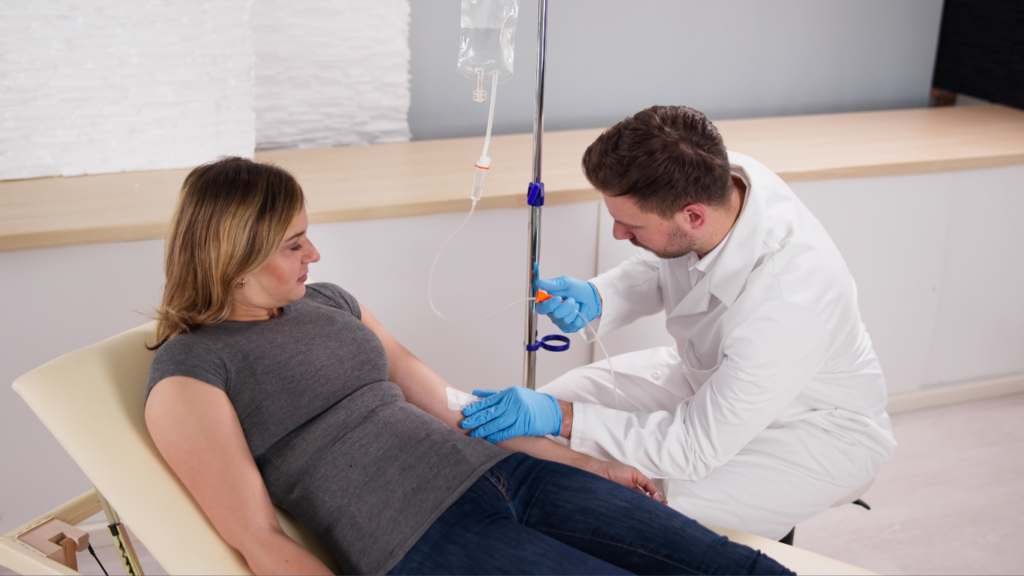Ketamine therapy has incredible success rates, but after several months some patients find that the impact can start to fade. This is totally normal and can be helped with periodic booster treatments. When to get a booster and how often is very individualized and best decided together with your mental health provider.
Have you noticed a difference in how you feel since completing your ketamine therapy? Whether you have Treatment Resistant Depression (TRD), anxiety disorders, PTSD, OCD, bipolar disorder or alcohol addiction, IV Ketamine works by triggering your N-methyl D-aspartate (NMDA) receptor in your central nervous system to release glutamate, a neurotransmitter in charge of mood regulation, pain signaling and more.
This helps your body reset itself, giving you more immediate and lasting relief from your symptoms compared to oral medications.
During a typical course of treatment, most patients receive a series of 6 ketamine infusions over 2-3 weeks. Booster sessions allow you to maintain the positive effects of the medication long after you complete the initial treatments. The frequency of booster sessions varies depending on the person. At Keta Medical Center, our doctors design an individual protocol for each patient based on their symptoms, needs and medical history.
What is a ketamine booster?
IV Ketamine boosters are supplemental infusions given to help sustain a symptom-free life and prevent relapse. Boosters are administered after the initial infusions to preserve the continuation of the positive effects of ketamine treatment. Depending on the patient and their symptoms, a booster is recommended anywhere from every 4 weeks to every 3 months. The frequency will be determined on an individual basis. The ultimate goal is to bring each patient to the point where they no longer have recurring symptoms.
When do you need a ketamine booster?
Are you starting to experience the resurfacing of symptoms? Or maybe you want to take a preventative approach and not experience the onset of symptoms at all? In either situation you should seek advice and touch base with your own mental health provider, as well as, the ketamine clinic to discuss booster infusions. The effectiveness of the initial infusions decreases over time but the time period fluctuates significantly and the need for boosters differs from person to person.
What might trigger a relapse?
In addition to time from last treatment, changes in your life can also cause a relapse in symptoms. Keep in mind that new stressors or life changes can impact the effectiveness of ketamine therapy. This is another instance where you may want to schedule a booster session. Together with your therapist and a ketamine medical expert, you can determine which treatment approach is best for you.
3 Key Benefits of Booster Sessions
There are many benefits to incorporating IV ketamine booster infusions into your mental health treatment plan. Here are some reasons you should continue your treatment with IV ketamine boosters:
- Maintenance of Symptom Relief: IV ketamine boosters can help sustain the positive effects achieved from initial infusions, preventing relapse of symptoms such as depression and anxiety.
- Customized Treatment Frequency: The frequency of boosters can be tailored to individual needs, allowing for personalized care and optimizing long-term outcomes.
- Cumulative Benefits: Regular boosters may contribute to cumulative neuroplastic effects, potentially enhancing and prolonging the benefits of the initial treatments over time.
Given these benefits, IV ketamine boosters can be a valuable option for maintaining long-term mental health improvements, offering continued symptom relief and personalized care that make them worth considering for those seeking sustained well-being.
Schedule a free consultation with Keta Medical Center to start your journey to well-being today! Let us be the catalyst that stimulates the transformation to a healthy, happier you.
Sources:




